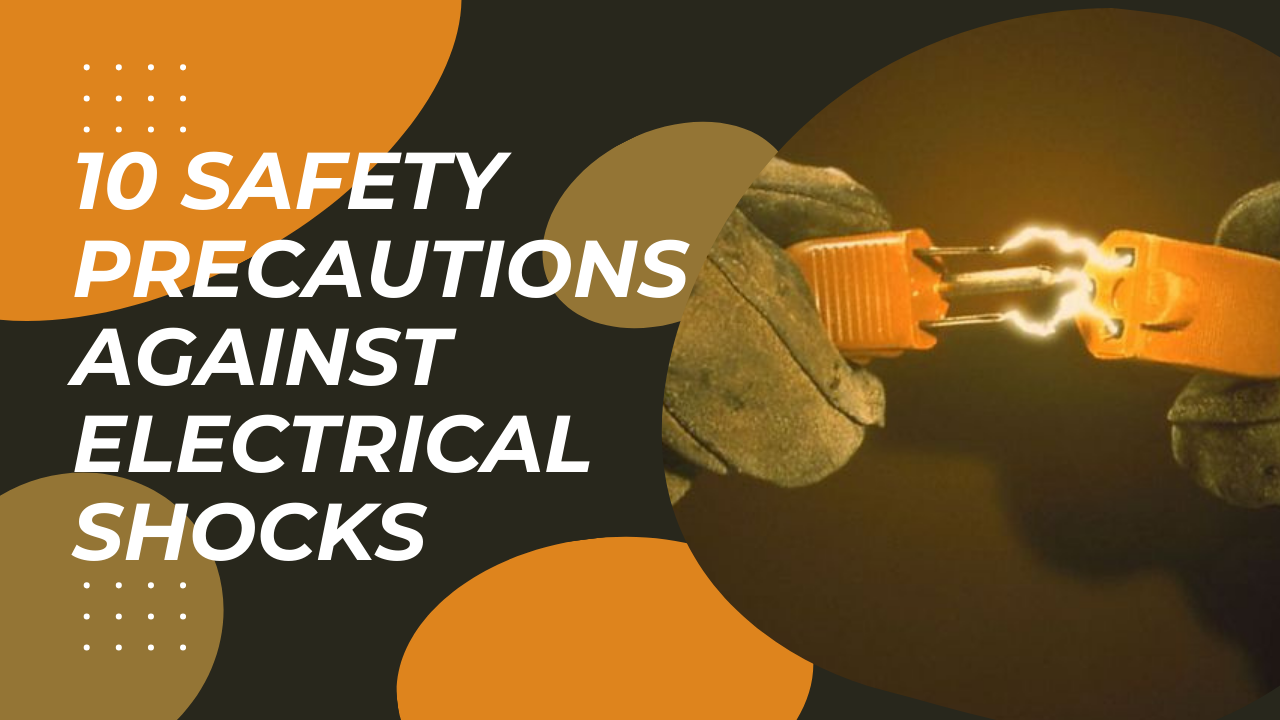Today, any office or workplace setting operates on electricity and so it is essential to take safety precautions when working with electricity. Safety must not be jeopardized and some ground rules need to be followed first. The basic procedures regarding the safe handling of electricity documented below will help you while working with electricity.
- CONTACT WITH LIVE ELECTRIC CURRENT SHOULD BE AVOIDED.
This is the best way to stay safe from electrical hazards. Unqualified employees should not come in contact or interact with currents greater than 50V and If you must work in the same area or room as an electrical hazard or equipment operating on more than 50V, make sure to maintain a safe distance. Check to make sure that all panel doors are shut, and that there are no exposed wires around your work area before you begin your operations.
02 USE LOCKOUT/TAGOUT: make sure that Live exposed electrical parts are de-energized before work on them or near them is permitted. You can also prevent accidents by isolating electrical energy and by locking and tagging out the electrical system or parts of the system. This protects employees from electrical hazards while performing servicing and maintenance activities
- SAFE USE OF ELECTRICAL.
When electrical equipment is properly used it can go a long to ensure everyone’s safety in the workplace.
cords should be unplugged by pulling on the plug head, rather than the cord.
Electrical cords should not be pressed or overstretched.
Do not fasten cords with staples
Do not hang electrical equipment from cords
finally, all cords and plugs in the workplace should be visually inspected for external defects before use.
- PROPER BARRIERS AROUND ELECTRICAL HAZARDS SHOULD BE INSTALLED:
Always make sure that Cabinet doors that are electrical are shut and free holes. If closets cannot be closed, insulating materials or barriers should be used. Signs should also be placed to warn employees of the hazard, and the area should be free of any obstructions.
- CONDUCTIVE TOOLS AND CLEANING MATERIAL SHOULD NOT BE USED.
If you are working in an area where an electrical hazard is present, always assume that electrical parts are live. Do not use conductive tools in the area!. Solvent and water-based cleaning materials are electrically conductive, as are steel wool and metalized cloth. Keep these cleaning products, as well as any conductive tools, away from living electrical parts and equipment.
- BEWARE OF ELECTRICAL LINES
When performing any work or maintenance overhead, beware of electrical lines. The ladder used for overhead activities should be portable and free of any conductive material. Make sure to keep it at least ten feet from the lines or any live wires around
- TAKE CAUTION WITH FLAMMABLE MATERIALS
Electrical appliances that can cause ignition must not be used where volatile gases, gases, or dust are present. The only anomaly to this rule is when skilled personnel take measures to lockout and separate electrical energy sources before these potentially flammable materials can be used or the electrical equipment is designed for use under these types of conditions.
- ONLY SKILLED PERSONNEL SHOULD WORK ON LIVE WIRES
Should in case you encounter a live electrical wire, avoid it. Only competent staff with the proper training should work on live electrical wires. This precaution also applies to hazardous electrical equipment. Any live electrical hazard should only be approached and managed by skilled personnel.
- ELECTRICAL SAFETY WORK PRACTICES SHOULD BE FOLLOWED
Make sure to regularly update yourself on any new rules and follow the already set down ones for electrical safety at the workplace to ensure that you and your coworkers are safe.
- ELECTRICAL SHOCKS CAN BE DEADLY
Keep in mind Electrically live parts do not look different from de-energized parts., and so it's best to assume that any electrical part is life to ensure your safety. You can’t be too careful when it comes to electricity.
Electricity is an advantage, but also dangerous if not controlled properly. If you feel there is an electrical problem in your home, it is strongly advised that you stay away from touching it.
